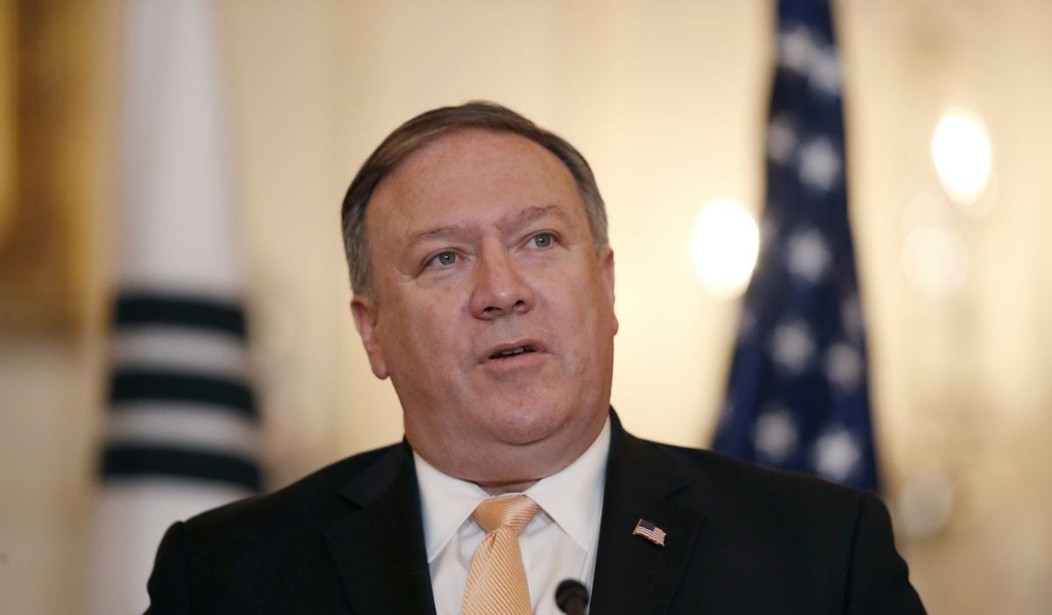The Trump administration is fashioning a new, more realistic, more complete strategy to deal with all the threats that Iran poses to the U.S. and the region.
Secretary of State Mike Pompeo will deliver an address at the Heritage Foundation on Monday outlining the new strategy.
“Our broad approach now that we’ve been emphasizing is that we need … a framework that’s going to address the totality of Iran’s threats,” Brian Hook, director of policy planning for the State Department, said on a conference call with reporters Friday.
“This involves a range of things around its nuclear program—missiles, proliferating missiles, and missile technology, its support for terrorists, and its aggressive and violent activities that fuel civil wars in Syria and Yemen,” Hook said. “And so we see an opportunity to counter and address Iran’s nuclear and proliferation threats, its destabilizing activity, and to create a better nonproliferation and deterrence architecture for Iran and the region.”
The Obama administration deluded itself into thinking it had adequately “addressed” the issue of Iran’s drive to construct a nuclear weapon. And they did little or nothing to address Iran’s support for Syria’s murderous dictator, Bashar Assad, or the Houthi rebels in Yemen. Meanwhile, unfreezing Iranian assets and giving them billions of dollars in cash did nothing to deter them from threatening our friends in the Middle East or lessening their support for terrorism.
“In the last three years or so, the JCPOA gave a lot of people a sort of false sense of security that by addressing Iran’s nuclear program, that we were somehow then addressing the totality of Iranian threats,” Hook said. “And it’s important that we change that dynamic.”
The Obama administration didn’t want to admit that lifting sanctions emboldened the Iranians across the region. At the same time, they urged restraint by Israel and Saudi Arabia who themselves, were being threatened by Tehran. Israel has responded by trying to prevent Iran from establishing a base of operations in Syria by attacking their infrastructure, while the Saudis are looking to check Iranian influence by going to war against the Houthis. The U.S. has remained on the sidelines while this was happening, but now it appears that we will join with other Western powers who are also looking to block Iranian power in the region.
In advance of the speech Monday, Pompeo spoke with the foreign ministers of Germany, France, and Britain, Hook said.
“We agree on more than we disagree, and we, as I said, have been working with the Europeans over the last week or two, and just in consultations with them, and we want to continue the momentum from our work with our European allies,” he said. “And we see this, the coming months, as an opportunity to expand our efforts and to work with a lot of countries who share the same concerns about nonproliferation, about terrorism, about stoking civil wars around the region.”
Reimposing sanctions is only the start. The administration will work to weaken Iran both externally and internally by forging stronger alliances with Iran’s enemies and trying to subvert the regime from within.
It’s a tall order and will take years to bring to fruition. But eventually, the so-called Islamic Republic will collapse under its own massive contradictions benefiting the people of Iran and the world.










Join the conversation as a VIP Member